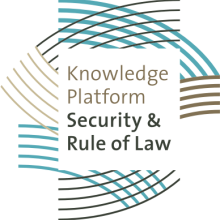
KPSRL
Authoritarian Regimes II: Social and political movements
The potential for social contract reforms of civic and social movements in authoritarian and hybrid regimes
Organized by: KPSRL, in collaboration with the Group for Research and Information on Peace and Security (GRIP) and the Transnational Institute.
This webinar is an opportunity to explore the relationship between civic and social movements, hybrid and authoritarian regimes, and changes in the social contracts of these countries. Among the questions that will be explored are:
- Which movements are most likely to grow and evolve in hybrid and authoritarian regimes?
- What results, especially connected to changes in the social contracts, can be expected from social and political movements in such repressive environments or in the presence of pro-authoritarian movements?
- How do social and political movements and the people inside them evolve over time?
- What are the implications for external support?
Natalia Forrat will set the frame of the conversation by presenting a comparative research on what results social and civic movements are likely to obtain, and which are most likely to grow and be successful in repressive environments. She will introduce two case studies on experiences with social and civil movements in hybrid and authoritarian regimes.
Michel Luntumbue from GRIP will engage in conversation with Floribert Anzuluni of Congolese movement FILIMBI on the experience of civil and social movements that recently responded to West African authoritarian attempts. In the first phase of their emergence, citizens movements in West and Central Africa asserted themselves as protest movements against politicians’ bids for unconstitutional third terms in power. Now, it is interesting to see how these citizens' movements have adapted to continue playing the role of watch dogs of democracy and democratic spaces once their initial battle was over.
Walden Bello, former member of the House of Representatives of the Philippines, professor at Binghamton University, professor of sociology and public administration at the University of the Philippines Diliman, and founder founder and chairperson of the left-wing alliance Laban ng Masa. (lit. Fight of the Masses) will share insights in the experience of social and political movements responding to authoritarian reforms prompted by the presence of far right populist movements.
Participants will be invited to engage directly with the presenters in further exploring their perspectives and distilling implications for policy and practice.
Register below to join us online on Monday, 17th July from 14:30-16.00 (CEST) / 13:30-15:00 (BST) online via Zoom.
Click here to check out the Concept Note.
The Nature of Authoritarian Regimes
This webinar is an opportunity to bring together and discuss the practical implications of three strands of research on the balance of consent and repression that sustain social contracts in Authoritarian regimes, being conducted at Clingendael, the Freedom House, and the Institute for Integrated Transitions.
Natalia Forrat (Freedom House and University of Michigan) will share two social roots of authoritarianism: union and division. It will use a case study of four Russian regions to discuss the tools that autocrats use to build their regimes from grassroots.
Erwin Van Veen (Clingendael) will present 'shades of authoritarianism’ in the Middle East with a focus on the use of ideology, clientelism, and the security apparatus to maintain control in the face of mounting development needs, popular dissatisfaction, and protest.
Alejandro Urrutia (Institute for Integrated Transitions) will present his ongoing research on ‘The Scope for Dialogue Between Civic and State Security Actors in Hybrid Regime Contexts' and discuss 1) the typical sources of resilience of hybrid regimes; 2) the mechanisms used by ruling parties to gain control or secure the loyalty of security forces; and 3) how civic and democratic forces can overcome common dilemmas when attempting to engage and dialogue with state security actors in such contexts.
Participants to the webinar will be invited to engage directly with researchers to identify the most relevant implications for policy and practice.
Register below to join us online on Tuesday, 13th June from 13:30-15:00 (BST) / 14:30-16.00 (CEST) online via Zoom.
Click here to check out the Concept Note.


